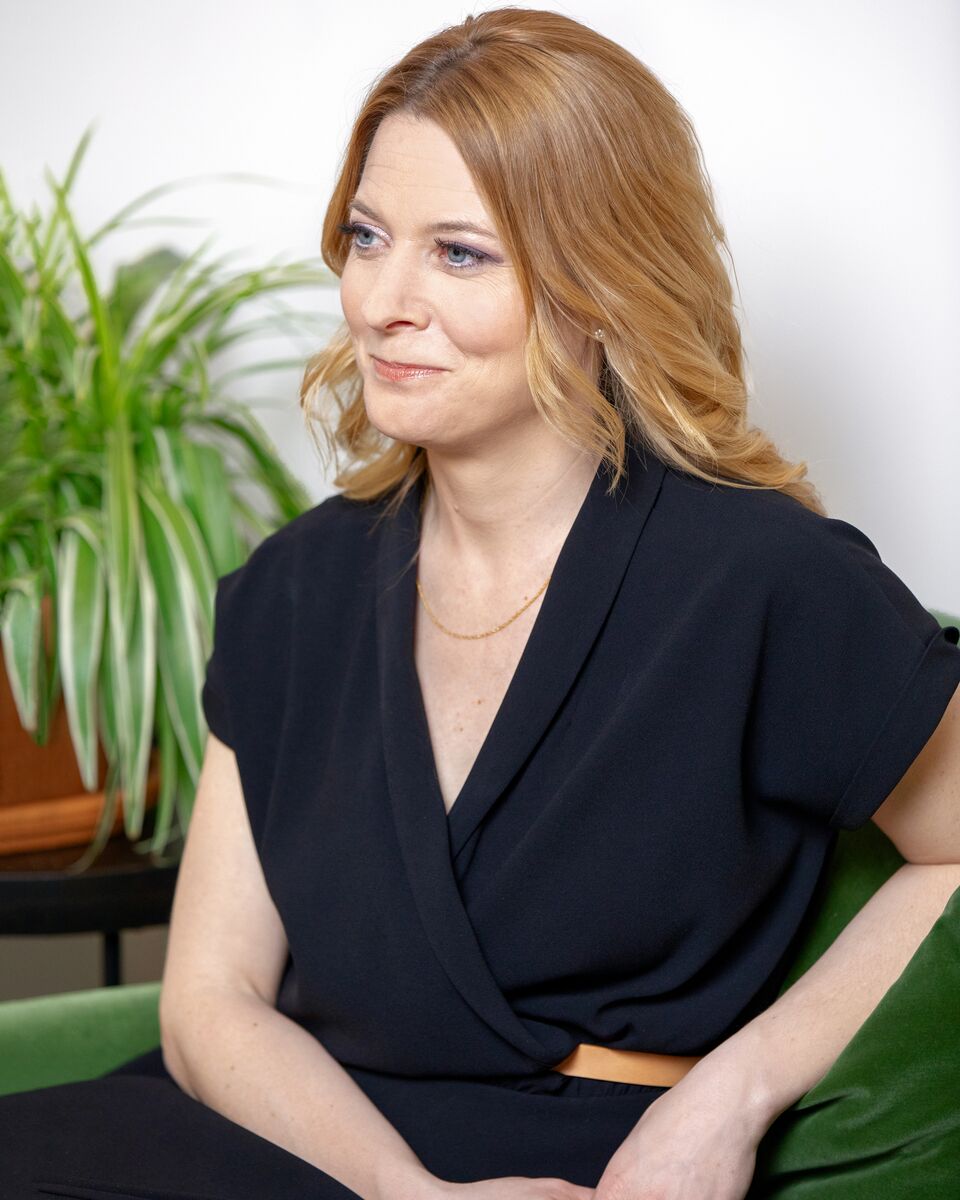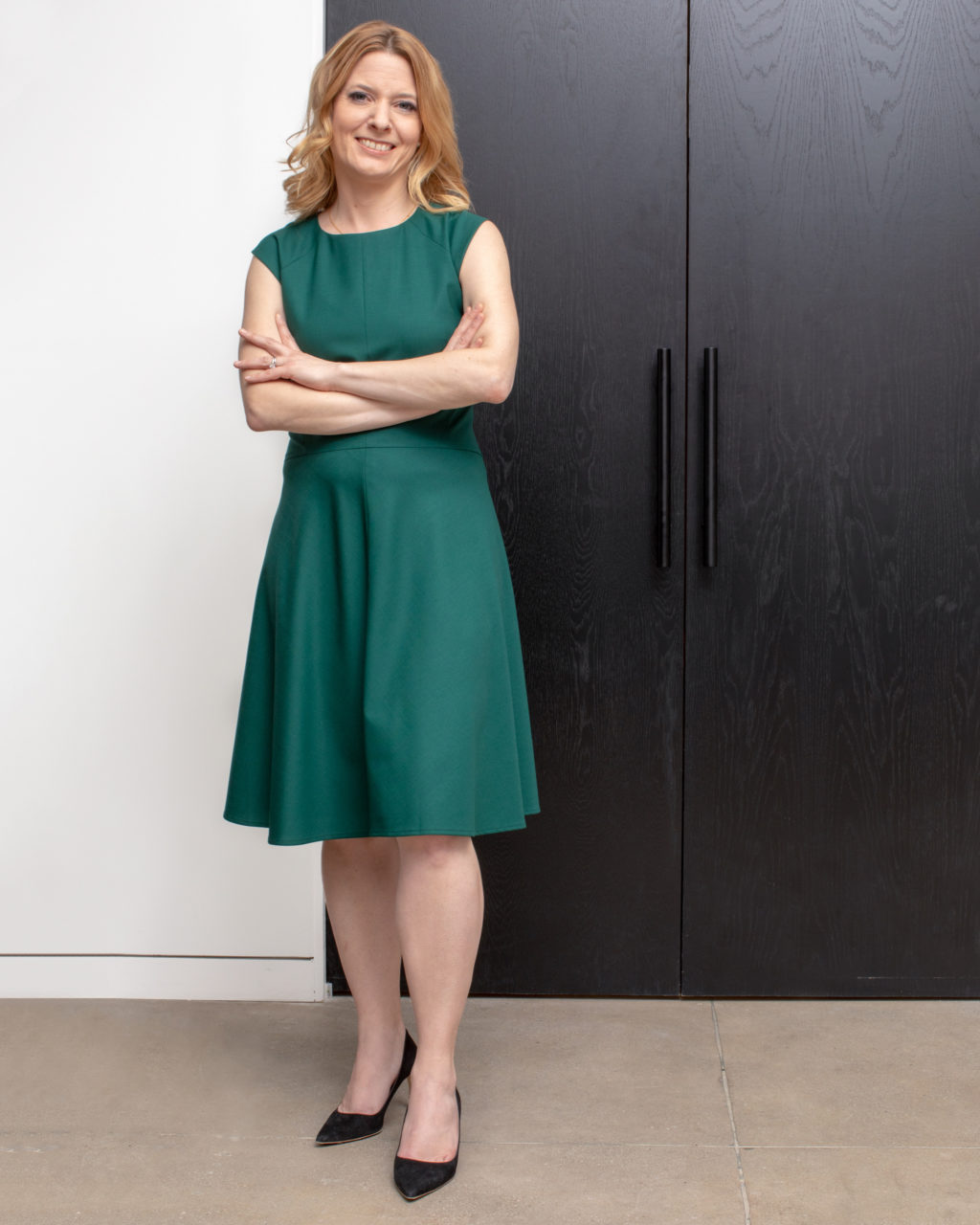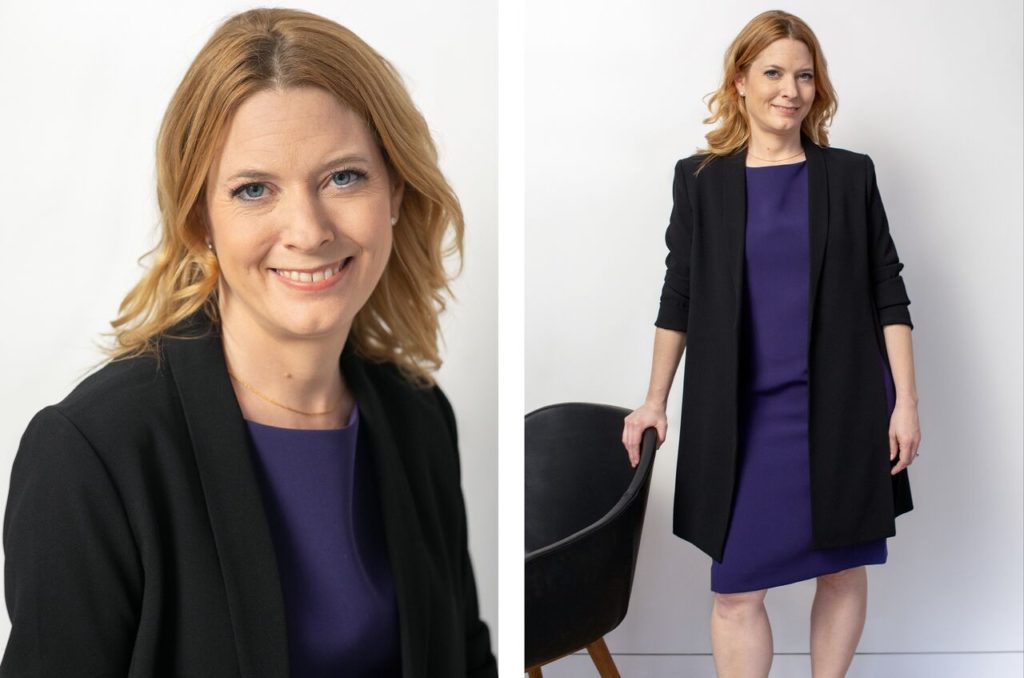46 Minutes with Time-Management Expert Laura Vanderkam
June 21, 2018 | Filed in: Woman of the Week
Laura Vanderkam’s latest book, Off the Clock, explores our relationship with time—how we spend it, how we waste it, and how we can better use it on the things we care about. And Vanderkam would know: She has churned out six books (including a novel), given a wildly popular TED talk, and run multiple half-marathons; she is also the mother of four children and an active member of her local choir. And if you’re thinking she’s one of “those people” with weird multitasking powers (or that she just doesn’t sleep), read on. Her tactics are simpler than you think.
I DON’T THINK ANYONE, as a kid, says, “I want to be a time-management expert when I grow up.” But I did always want to be a writer. The time management aspect of my career came from writing about a lot of different topics, and finding that this one interested me as well as other people, so there’s a happy confluence there. I’m also interested in other topics that no one cares about, like experimental poetry, but those don’t pay the bills.
I STARTED MY CAREER doing a year-long internship at the op-ed page of USA Today. I worked with some wonderful editors, and I got to write columns, which was exciting. After that, I decided to move to New York and freelance, just to see if I could make a run of it. I’ve been writing on my own pretty much ever since. I did some ghostwriting and co-authoring early on, which taught me a lot about how to write a book, so by the time I was writing books under my own name, I’d actually written several already.

Laura wears the Tory dress in black, the Accent belt in sand dune, and the Turanna necklace.
SELF-EMPLOYMENT IS NOT FOR THE FAINT OF HEART. Some people do it intentionally, and some people do it inadvertently because they’ve gotten laid off or something. But the funny thing is, a lot of people tend to like it once they get started. There is something wonderful about having control of your time. A sense of autonomy is so important, and the more that people can exercise it in various spheres of their life, I think the happier they’ll be.
AFTER BECOMING A PARENT for the first time, I started writing about women and work, and I found various studies that showed a different angle on all that Mommy Wars garbage that you read in the popular press. A lot of those findings had to do with how women actually spend their time. I found historical time-diary studies showing that, in fact, women generally spend more time with their children now than they did in the ’50s and ’60s. That’s incredible, if you think about it, because a much higher percentage of mothers work for pay now than they did then. But we have these broad beliefs that we spend less time with our kids now, and that’s not necessarily borne out by the data. So I started exploring those numbers, and that’s how my first book, 168 Hours, came to be.
ONCE YOU WRITE ONE BOOK ABOUT A TOPIC, you become known for it, so here I am, still writing about time. But it’s such a broad topic that you can take it almost anywhere. How we live our hours is how we live our lives, and time blends into career, productivity, history, and sociology. So I haven’t found it terribly limiting. My latest book, Off the Clock, is a wee bit memoir-ish in some parts. And next March, I have another book coming out that’s fiction, but also on the subject of time management—it’s a fable.

Laura wears the Toi dress in viridian with the Turanna necklace.
I’VE BEEN TRACKING MY TIME CONTINUOUSLY, using time logs, for three years now, in half-hour blocks. I usually check in about three times a day and write down what I’ve been doing. This system has helped me spend my time in ways that are more gratifying. For example, I’ve been able to scale up my reading time. The first year I tracked, I spent 327 hours reading, in total, which sounds pretty good—a little bit under an hour a day. But it was mostly online articles and magazines. I had been telling myself this story: “I have four kids, I work, I travel, I have no time to read.” But that clearly wasn’t true. When I thought about how I actually wished to allocate these 327 hours of reading, I started reading more books, and carved out time to choose those books and make sure they were available when I had a moment. I’ve read more good books as a result.
I DON’T FEEL GUILT ABOUT WHERE MY TIME HAS GONE. I think that when something is done, it’s done. Guilt is a waste of time. If you’ve actually hurt someone, you should make amends—that’s the usefulness of guilt. But if you haven’t actually hurt anyone, then it’s all just data that you can analyze. If you’re not happy with where your time is going, you can learn from that and adjust.
WE OFTEN TELL OURSELVES STORIES about where our time goes that may not be true. For instance, we overestimate how many hours we work. We tend to remember our most intense weeks as typical, whereas we dismiss our lighter weeks as atypical. If you spent time on one weekend doing some work, you’d say, “Oh, I work weekends.” We tend to underestimate sleep for the same reason. We overestimate the things we don’t want to do, and underestimate the things we do want to do. We tell ourselves we have no free time at all. But keeping a time log will show you that this is probably not true.

Laura wears the Sarah dress in deep indigo, the Dietrich jacket in black, and the Turanna necklace.
ONCE YOU SEE WHERE YOUR TIME IS GOING, you can make better choices about it. Particularly for working mothers, there’s this cultural narrative that if you work full time, you never see your family. A time log will show, in black and white, that you’re probably spending many hours with your children, and that can be a very good antidote to any misplaced guilt that might be lingering. Time logs can also help you understand that you need breaks throughout the day. The issue with a lot of our breaks is that they’re fairly unconscious: You’ve been working really hard, and then you get an alert on your phone, you click on it, and then you’re on Facebook for a while, and you don’t necessarily feel rejuvenated by it. Instead, you should monitor your energy throughout the day and proactively figure out when you’ll need zone-out time. Social media breaks aren’t bad, but you need to plan them. Or maybe grab a cup of tea with a friend, or go outside for 10 or 15 minutes. Think of it as a smoke break without a cigarette.
WE HAVE THIS CULTURAL MINDSET of, “You are not necessary unless you are working many hours.” How can people get over that? This is a very nuanced point, because I don’t believe you can just tell people to cut their hours. Also, there are phases of life when one does need to work more; the reason I can work fewer hours now is partly because I spent a lot of time working in the past. Now I give speeches, which are often more lucrative than writing articles, and I can earn more money in less time. But I give speeches because I’ve already put in the time writing books and articles over many years. So you get these time dividends later on.
I KEEP MY DAILY TO-DO LIST SHORT ENOUGH that I can always accomplish what’s on it. Why put something on your to-do list if you’re not going to do it? You just feel bad about it. It’s normal for stuff to come up during the day, so at some point in the afternoon, I’ll revisit the list and adjust as necessary. I also plan my own personal time. I run, I read, and I sing in a choir. There are people who say, “Oh, after you have kids, you don’t have any time to yourself,” and that’s not true—you just have to plan.

Laura wears the Tory dress in black, the Accent belt in sand dune, and the Turanna necklace.
I FIND IT FRUSTRATING WHEN PEOPLE ARE WEDDED to their story of being a crazed, harried, put-upon woman, and look for evidence to support that story. Nobody actually cares, right? There is no 11:00p.m. home inspection where somebody comes around to see if all the toys are put away and the kitchen is clean. Why do you have this idea that you can’t relax until everything is picked up? If you want to relax, go relax. Go watch TV. It’s the same thing with your emails. Maybe they don’t always all get responded to—oh, well. You might lose an opportunity, but a lot of stuff does not matter as much as you think. For example, do you have any memory of today’s date two years ago? I’m sure on this date in 2016, you were probably upset about something, or stressed, or overjoyed, but you can’t remember it now. So maybe it wasn’t as essential as it seemed.
BECAUSE I KEEP THESE TIME LOGS, I can look up any day I want and tell you exactly what I did, which is kind of fun. I could tell you how much I slept, how much I worked, how much I read, when I was in the car. I feel like I have more time because I can see all the stuff in my life, and all these rich experiences. Nothing is slipping through my fingers because I can haul the memories back up and hold onto them. I started doing the time logs so that I could write about them, but I’ve kept doing them because I find it so cool.
Photographs by Todd Barnes.





